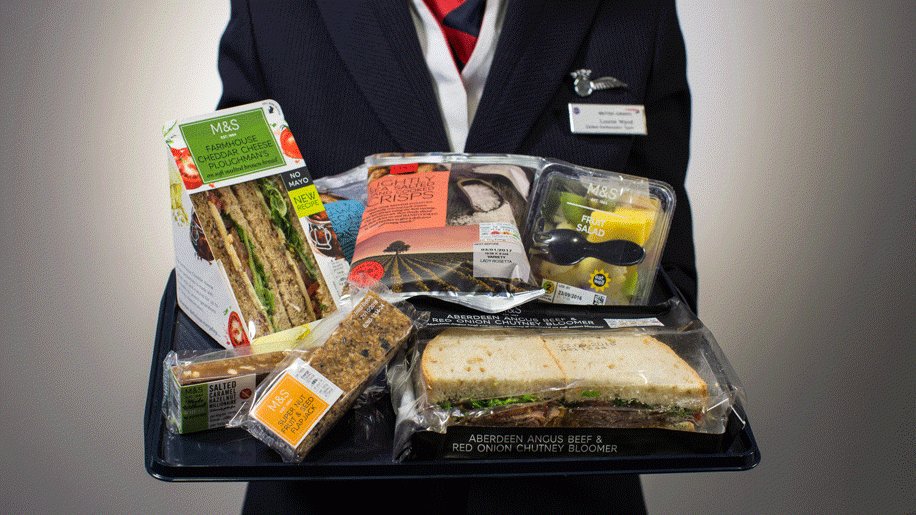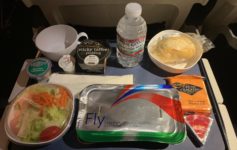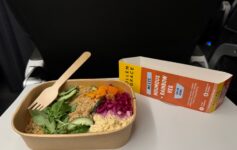British Airways continues to struggle with its new buy-on-board scheme, with passengers often encountering food shortages on flights within Europe. Oddly, the problem seems to go hand-in-hand with toilet paper provisioning.
First, a comment on British English. Do you really call it a “loo roll” instead of toilet paper or is that just tabloid jargon? I do love the Sun’s lead paragraph—
FRUSTRATED British Airways passengers are going hungry as the flagship airline continues to struggle to stock jets with food after scrapping its free in-flight meal service.
But while passengers may be able to survive a two hours flight without eating, I do question why Alex Cruz, the nickel-and-diming king at Vueling who now runs British Airways, does not have a better grasp on food demand onboard flights. Surely during his tenure over Vueling, which offers exclusively buy-on-board food onboard, he and his team would have gained a grasp on projecting demand.
Ah, but perhaps the market forces of British Airways are different than Vueling. And perhaps that is why I bemoaned the introduction of buy-on-board in the first place on British Airways.
> Read More: British Airways’ Curious Strategy for Growth
Not to beat a dead horse, but I continue to ask who would pay a premium to fly British Airways when service is at Ryanair or EasyJet levels and BA will soon have even less legroom than Ryanair!
> Read More: British Airways Will Have Less Seat Pitch Than Ryanair!

BA proudly boasts that its in-flight meals are “affordable” but what difference does it make how affordable these meals are (they’re actually not — even tea or coffee runs £2.30) if FAs run out halfway through the cabin?
> Read More: The Death of the English Breakfast on British Airways’ Domestic Flights
On the Issue of Toilet Paper
Lastly, BA seems to be running out of toilet paper. I doubt British Airways would deliberately under-order toilet paper, but it again speaks to competency. An airline that cannot better gauge how much toilet paper and food is necessary on a flight may have some more serious issues…like the cutbacks themselves.




It is amazing how differently the legacy carriers are behaving on different sides of the pond. The US3 are reintroducing free meals on their longest flights (although also basic economy on even more flights) and seem to be focused on improving services while also cutting costs. At the same time, BA charges for coffee and tea, not even the big “low cost carriers” in the U.S. charge for drinks.
Since BA cant use bankruptcy to lower costs like the US3 have done, they have to be able to command a price premium somehow. If they can’t they are going to have big problems.
I acknowledge the situation is different in USA with the biggest LCCs, SWA and JetBlue, not really being low cost airlines. Both offer significant advantages over the US3 in the fight for business travelers (free flight changes and bags for SWA and free internet, more legroom, free TV and better snacks for JetBlue). These advantages means the US3 must compete on service as well as price. If they don’t, domestic business travelers in NY and BOS will defect (see the rapid introduction of flat bed transcon service after B6 brought mint to Boston).
It does seem odd and the fact that both food and TP are suddenly running low seems to suggest some problems with their overall provisioning and logistics scheme. One wonders what else is being mucked up behind the scenes.